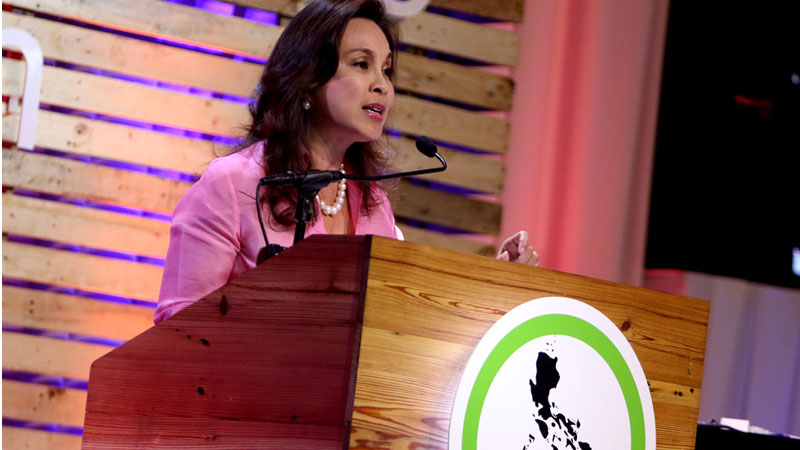The Senate on Tuesday unanimously concurred with President Duterte’s ratification of the historic Paris climate agreement, an international pact that seeks to delay and mitigate the destructive impact of extreme weather.
With 22 lawmakers voting “yes,” the Senate adopted a resolution concurring in the Philippines’ accession to the agreement, which aims to limit global warming below 2 degrees Celsius to prevent an irreversible rise in the planet’s temperature.
Earth’s rising temperature has spawned stronger storms, including those that have hit the Philippines in recent years, caused extreme summers and extended droughts, threatening food security and stoking instability in vulnerable nations.
The ratification gives the Philippines access to the Green Climate Fund, a mechanism under the pact where developed nations, for long the world’s biggest carbon emitters, is obliged to pool together $100 million annually to support vulnerable countries.
Present at the Senate session to witness the historic vote were representatives from the French Embassy and officials of environment agencies.
Sen. Loren Legarda, among key Philippine delegates to the climate talks in Paris, expressed gratitude to the President and the Cabinet for the ratification—a turnaround from Mr. Duterte’s pronouncements early in his term that he would not honor the treaty as it might stymie the Philippines’ industrialization programs.
“The Paris Agreement shows that developing nations and the developed countries could pursue climate action and uphold climate justice together,” she said in her speech upon passage of the ratification on Tuesday.
‘Yolanda’ tragedy pivotal
Legarda, chair of the Senate subcommittee on the Paris Agreement under the Committee on Foreign Relations, had presented to the floor Senate Resolution No. 320, which sought the legislature’s adoption of the Executive’s ratification of the agreement.
In her speech, Legarda cited how Supertyphoon “Yolanda,” a monster storm that hit the Philippines in November 2013, was pivotal in urging climate action. The typhoon left more than 6,000 dead and scores others missing.
“With the Yolanda tragedy, the Philippines became the face of climate vulnerability. We have hardly contributed to climate change, and yet we are the victims. The world listened to our voice in the climate talks. We had the moral suasion. We were regarded the leader of the vulnerable, the champion for climate justice,” she said.
Legarda said the climate pact, through efforts of the Philippine delegation, includes provisions on gender equality, indigenous people’s rights, the protection of children, and grant-based financing for developing countries in support of climate change adaptation measures.
“Acceding to the Paris Agreement allows our country access to international climate finance mechanisms and to acquire support from developed countries for adaptation, mitigation, technology development and transfer, and capacity building,” said Legarda, adding that this could help fund “early warning systems, comprehensive risk assessment and management tools, and other capacity-building projects and programs” toward climate resilience.
While welcoming the accession, Sen. Sherwin Gatchalian, chair of the Senate committees on energy and economic affairs, meanwhile called for a balance “between environmental responsibility and economic resilience.”
“We must take care to ensure that our valiant efforts to safeguard and preserve the environment do not result in the curtailment of the economic growth potential of our developing nation,” he said.
Climate Reality Project Philippines, the local branch of the climate action group founded by former United States Vice President Al Gore, welcomed the ratification as an “important step” toward fighting the effects of climate change.
Renato Redentor Constantino, executive director of the Institute for Climate and Sustainable Cities, called more decisive government action.
“The baton has been passed back to the executive branch to implement the Paris deal,” said Constantino.
